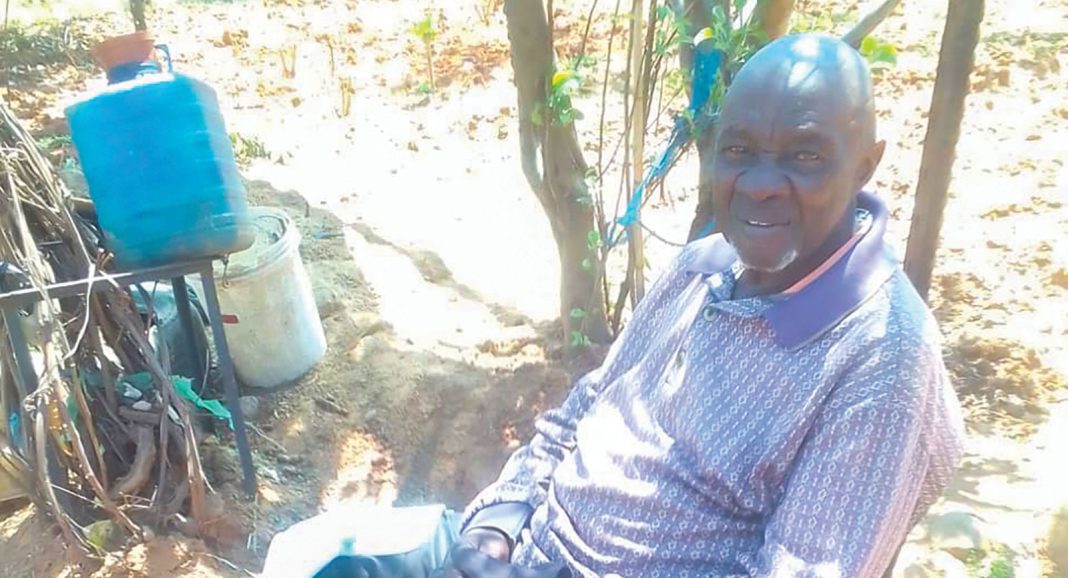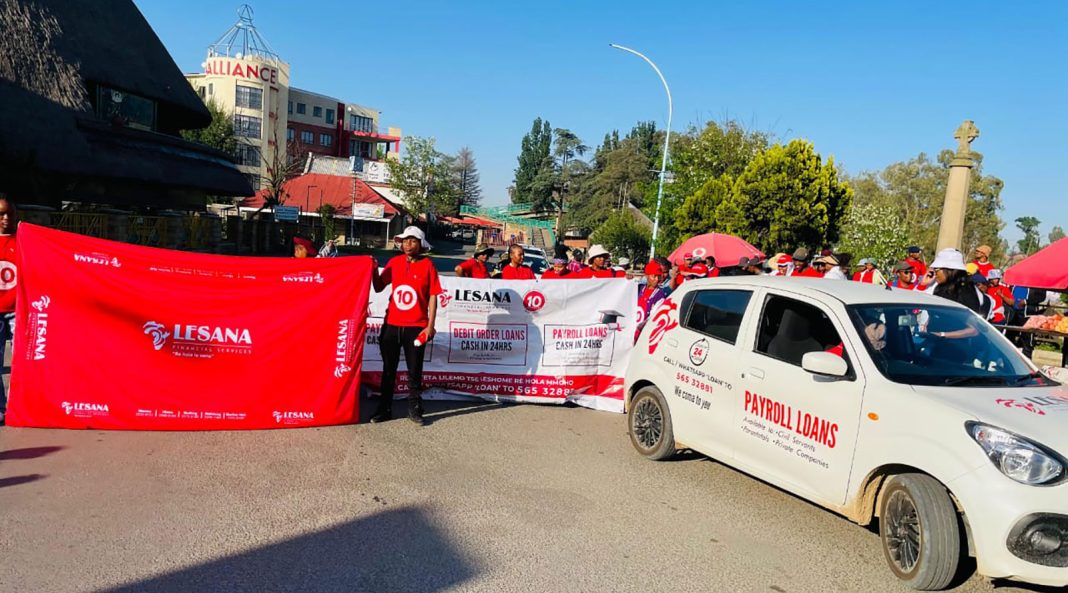Teboho Mokopotsa, a 73-year old pensioner of Ha Nyenye in Maputsoe, has been living with rheumatoid arthritis for the past 18 years.
He was first diagnosed with the disease in 2018 after retiring from the mines in Kimberley, South Africa, but the symptoms had begun long before that.
Arthritis is the swelling and tenderness of one or more joints. The main symptoms of arthritis are joint pain and stiffness, which typically worsen with age. The most common types of arthritis are osteoarthritis and rheumatoid arthritis.
Osteoarthritis is a degenerative joint disease, in which the tissues in the joint break down over time. It is the most common type of arthritis and is more common in older people. People with osteoarthritis usually have joint pain and, after rest or inactivity, stiffness for a short period of time.
Rheumatoid arthritis, on the other hand, occurs when the immune system, which normally helps protect the body from infection and disease, attacks its own tissues. The disease causes pain, swelling, stiffness, and loss of function in joints.
Mokopotsa recalls that he first began experiencing severe pain in his fists and knees, which made him believe he was having a stroke. He was rushed to the doctor, who diagnosed him with arthritis.
Mokopotsa says he had always been a healthy person, never prone to illness.
He worked in Kimberley for nine years, where it would snow heavily at times. Later, he moved to Storm Diamond Mine, where the harsh winter conditions worsened his health.
Both his left hand and right foot now struggle to function properly. “I am unable to stretch them, and they cause me constant pain, whether I am sitting or sleeping,” he explained.”
Since his diagnosis, Mokopotsa has been taking medication regularly and attends monthly check-ups at Motebang Hospital in Hlotse, Leribe.
Despite the challenges, he remains a lover of plants. However, his passion for gardening has become more difficult. He now uses a chair to dig, needing to sit down frequently due to the pain in his joints.
Mokopotsa also experiences persistent coldness in his feet, especially at night and in the mornings.
Occasionally, his feet swell, and he finds it difficult to wear socks.
Three years ago, during a visit to Motebang Hospital, he was also suspected of having silicosis, a lung disease caused by inhaling fine silica dust. He is currently receiving medication for both conditions.
“I experience painful cramps in both legs, and when I try to stretch, the pain becomes unbearable.
“As a result, I prefer to wear sneaker instead of restrictive leather shoes, which exacerbate the discomfort,” he noted.
Mokopotsa said he used to enjoy playing football, but he stopped since he got home due to his sickness.
He his nephew made him walking sticks which he uses to walk. He said when he gets in a car, his legs and hands ache a lot.
When the weather is cloudy, both his legs cramp and he has to take medication.
Arthritis, as Mokopotsa has experienced, is a disease that affects the joints, leading to pain, stiffness, and swelling, making daily tasks more challenging.
Despite the ongoing pain, Mokopotsa continues to face each day with resilience, managing his condition with the help of medication and regular medical care.
A retired nurse who would rather stay anonymous explained that arthritis affects different people in different ways.
She said some may feel the impact in their hands, while others may experience it more in their feet or legs. This can variability make it difficult to recognise arthritis early on, as the symptoms can appear gradually.
“Many people don’t realise they have arthritis until it’s more advanced, often because the joints start to feel unable to carry the body’s weight or perform normal tasks.
“This delay in diagnosis can make treatment more challenging,” she said.
The nurse pointed out that the treatment for arthritis is often made difficult due to the side effects of some medications that the patient is taking.
For example, she pointed out, anti-inflammatory medications can cause ulcers in some patients, and for those with other conditions like hypertension, certain drugs are not recommended due to potential interactions or exacerbating the condition.
A medical orthopaedic and prosthetic Dr Chabeli Mohatlane emphasized that increased vulnerability to arthritis and osteoporosis that can come with aging, especially for women after menopause.
Dr Mohatlane noted that arthritis primarily affects older adults, particularly women more than men, likely due to the hormonal changes women experience during menopause.
He said the loss of estrogen during this stage can accelerate the weakening of bones, leading to conditions like osteoporosis, a condition where the bones become porous, meaning they lose density and strength. This makes bones more fragile and prone to fractures or injuries.
“Arthritis can affect any joint, including fingers and toes. This can lead to pain, swelling, and stiffness, which limits movement and function in daily life,” Dr Mohatlane stated.
He advises people, especially the youth to take care of themselves health-wise because it can be inherited.
There is not enough awareness on arthritis, he adds.
Makopotsa is one of many Basotho who have to navigate through each day with arthritis as the country joins the rest of the world in marking World Arthritis Day on Monday next week.
Commemorated every year on October 12, is a global awareness day which aims to help raise awareness in all audiences across the world of the existence and impact of rheumatic and musculoskeletal diseases, often referred to as Rheumatoid Arthritis Deaths (RMDs).
According to the latest World Health Organisation (WHO) data published in 2020 Rheumatoid Arthritis Deaths in Lesotho reached 18 or 0.05 percent of total deaths. The age-adjusted death rate is 1.28 per 100,000 of population ranks. Lesotho #2 in the world.
WHO in 2019 reported that 18 million people worldwide were living with rheumatoid arthritis.
About 70 percent of people living with rheumatoid arthritis are women, and 55 percent are older than 55 years.
An estimated 13 million people with rheumatoid arthritis experience severity levels (moderate or severe) that could benefit from rehabilitation.
While rheumatoid arthritis is a systemic autoimmune disease that affects multiple body systems, the joints of hands, wrists, feet, ankles, knees, shoulders and elbows are most often affected.









